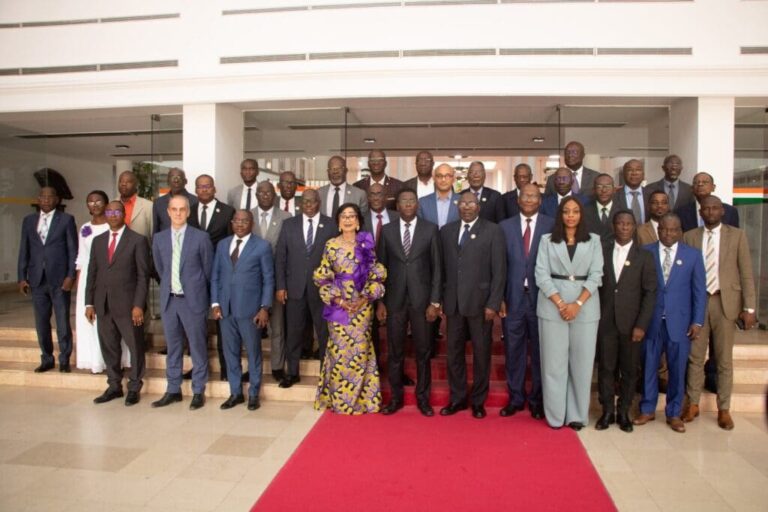Auditors from the 24th cohort of the Economic Policy Management Program (GPE-Abidjan) presented the macroeconomic indicators of Cote d’Ivoire’s economy to lawmakers on Thursday, December 19, 2024, following an extensive study.
The findings, delivered by auditor Kacou N’Guessan at the rotunda of the Ivorian National Assembly in Abidjan, focused on the country’s Economic and Financial Program for the 2024-2026 period.
Kacou N’Guessan noted that in the past five years, events such as the COVID-19 pandemic, the Russia-Ukraine conflict, and emerging geopolitical tensions have led to inflationary pressures and tighter monetary policies.
Thanks to sociopolitical stability and reforms under the National Development Plan (PND 2021-2025), Ivory Coast is demonstrating strong economic momentum, he emphasised.
A “Strong Economic Momentum”
The country’s economic growth, estimated at 6.7% in 2022 and 6.6% in 2023, is projected to reach 7% in 2024, according to forecasts. The discovery of oil and mineral deposits points to an upward trajectory, Kacou N’Guessan observed.
The study revealed a tax pressure rate of 12.8%, significantly below the West African Economic and Monetary Union’s (UEMOA) minimum threshold of 20%. Meanwhile, the budget deficit averages 7.3%, exceeding the UEMOA recommendation of 3%.
However, the Ivorian government should prioritise local product transformation to add value and enhance economic performance. Additionally, broadening the tax base, managing the budget deficit, and controlling public debt are critical steps.
This approach, according to Francis N’Guessan Coffie, director of the GPE-Abidjan Program, allows auditors to “immerse themselves in administrative processes and propose solutions for continuous improvement of activities.”
Deputy Paul Dakuyo, representing the Speaker of the National Assembly, commended the initiative. As a contribution to the study, he urged the auditors to incorporate Artificial Intelligence into economic programming and transform it into an industry.
A Certification Program
Since 2023, the GPE-Abidjan Program has conducted economic policy presentations outside its usual premises to engage with the public and contribute to the training of key societal actors.
Established in 1998 by the African Capacity Building Foundation, the GPE-Abidjan Program at Félix Houphouët-Boigny University aims to enhance the skills of public sector officials from Francophone West African countries in economic policy management.
The program offers a 12-month course leading to a Master’s degree in Advanced Studies in Economic Policy Management, alongside international training seminars. It trains high-level professionals working in public administrations and international organizations.
From 1998 to 2024, GPE-Abidjan has trained nearly 900 professionals, 60% of whom are Ivorians and 40% from other countries. A key objective of the program is to educate by providing technical insights into the utility of economic programs and reforms.
AP/sf/lb/as/APA


